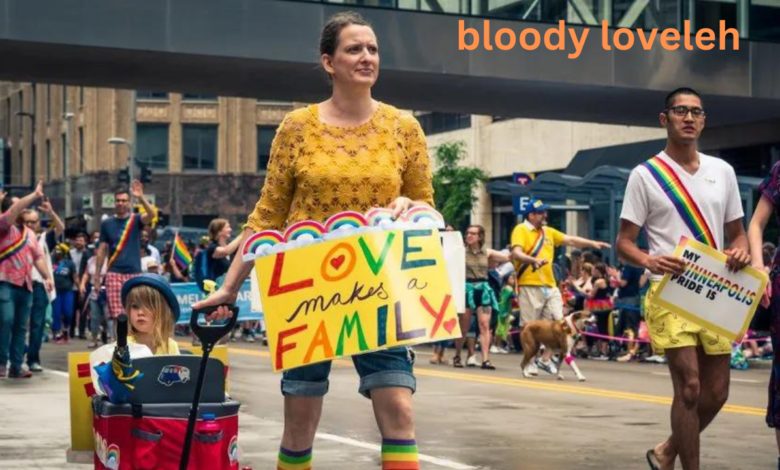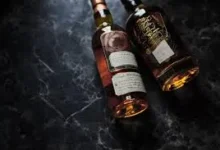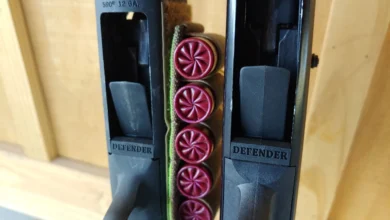Bloody Loveleh Exploring the Viral British Phrase

If you’ve spent any time around British slang, chances are you’ve come across the phrase “bloody loveleh”. The term combines two iconic elements of British vernacular: “bloody,” a widely used intensifier, and “lovely,” a common expression of admiration or approval. Together, they form a colloquial phrase that’s pack with character, emotion, and charm. While it may seem like a simple expression, bloody embodies a lot of what makes British slang so unique and colorful. In this blog post, we’ll take a deep dive into the origins, meanings, and growing popularity of this quirky expression.
1. What Does “Bloody Loveleh” Mean?
At its core bloody love is a playful and emphatic way of saying that something is truly wonderful or delightful. Let’s break down the two components:
- “Bloody”: Slang words used in British specifically the term ‘bloody’ is usually use before an adjective or verb to intensify or make it stronger. Though, it cannot be consider as provocative, it gives some animation or stress to that which it characterizes. For instance, whereas the phrase “bloody brilliant” literally means ‘really brilliant.’
- “Loveleh”: This is simply a phonetically playful version of “lovely,” often associated with certain British dialects, especially from areas like the East End of London or Yorkshire. “Lovely” is use to describe something pleasing, delightful, or attractive.
Lit with “bloody loveleh” may be interprete as “It is great” or “This is very good!” But, in fact, it is rather informal, nearly frivolous, English kitsch phrase, which as a rule is used ironically while commenting on something plain or petty.
2. The Origins of “Bloody” in British Slang
To fully appreciate the phrase “bloody loveleh,” it’s important to understand the history of the word “bloody” in British culture. While today it’s considered mild, “bloody” once had a far stronger connotation.
- Historical Use:The term “bloody” has history as old as the 17th century, it was consider much more as an exclamation, in the breathes of anger or intensity. The usage of this word started particularly as the word used by the aristocrats in the British market and then gradually made its way to the common practice and became one of the most fluid words ever used in the British market.
- Milder Usage: In the course of time it acquired a rather harmless connotation. In modern day Britain, use of ‘bloody ‘as a adjective becomes more of a milde swearing which is employe in informal social interactions and in playful manner. This puts colours into our ordinary conversations and is quite often used in a way that is often joked and is rather characteristic of the British sense of humour.
3. “Loveleh”: Dialectal Charm and Regional Identity
The term “loveleh” comes from a phonetic twist on the word “lovely.” This form of speech is associate with particular British accents, especially Cockney or Northern English dialects.
- Cockney Influence: The Cockney accent, which is traditionally associate with working-class Londoners, often swaps certain vowels and softens others. In this case, “lovely” becomes “loveleh” in casual speech. While this might sound rough or crude to some, it carries a warmth and familiarity that is often celebrated in British culture.
- Northern Charm: In Northern England, particularly in Yorkshire, there is also a tendency to add a charmingly stretched “eh” sound to words. In these regions, a person might say “loveleh” as a friendly or affectionate term.
Both accents are known for their distinctiveness and for being deeply root in local identity. The pronunciation “loveleh” brings with it an air of authenticity, community, and cultural pride.
4. Why Has “Bloody Loveleh” Gone Viral?
The phrase “bloody love” has recently gained traction far beyond its origins in British slang. A variety of factors have contributed to its rise in popularity, from media influence to internet virality. Here’s why it’s become a beloved phrase worldwide:
- Television and Movies: Further, numerous British television programs-whether they are dramas or comedies-have pist away British slang all over the world. Cult TV series, such as Peaky Blinders, The Crown and Downton Abbey, have familiarised viewers in other countries with a number of distinctively British colloquialisms. While ‘bloody loveleh’ may not be use in all of them the idiomatic expressions such as ‘bloody brilliant’ and ‘bloody lovely’ have definitely added to its popularity.
- Social Media: Like many viral expressions loveleh found its footing in the digital age. TikTok, Twitter, and Instagram have seen thousands of users incorporate the phrase into their posts, whether they’re describing a tasty meal, a delightful experience, or just something that made their day better. It’s a fun, catchy phrase that adds a splash of British charm to everyday moments.
- British Pop Culture: A lot of British comedians, Youtubers, and influencers helped in popularizing this saying across the world. Not only is it use in strict professional situations, it has become a meme of sorts in Britain, many celebrities saying it in a comedic manner.
Also Read; Phuket Happiness Trips Turtle Village
5. The Cultural Significance of British Slang
British slang holds a special place in global pop culture. Phrases like bloody are more than just linguistic quirks; they serve as windows into the humor, character, and lifestyle of Britain. Here are a few reasons why British slang has such an enduring appeal:
- Wit and Humor: The British are renown for their dry wit and sarcastic humor. Slang phrases like “bloody loveleh” embody this humor perfectly, combining enthusiasm with a slight wink to the audience. It’s often use in situations where the speaker is poking fun at their own excitement, adding a layer of self-awareness.
- Regional Pride: Even though Brits use slang in the same English language that they speak, their slang is unique to their respective, system of regions and loveleh is part of such cultures. Dialects, accents and regionalisms guarantee the people uniqueness and make them feel that they belong to a specific region.
- Global Fascination with British Culture: In Britain, one can observe many aspects of modern culture and civilization being represent dominantly in the royal family, literature, music and films. This is why British slang is also a part of this cultural interest, because those who are from other countries can at least try to be a part of Britain’s tradition or their daily life.
6. How to Use “Bloody Loveleh” in Conversations
Using bloody might seem simple enough, but to get it just right, it helps to understand the contexts in which it works best. It’s a playful expression, so don’t be afraid to use it in light-hearted or casual conversations.
Everyday Usage:
- Food and Drink: If you’re enjoying an exceptional meal or beverage, you might say, “This pie is bloody loveleh!”
- Weather: On a particularly nice day in Britain (which can be rare), someone might quip, “The weather’s bloody today.”
- Complimenting a Friend: When a friend is looking particularly nice or has done something praiseworthy, you could say, “You’re looking bloody!”
Tone and Intention:
It is perfect for using with warmth, or even comedy, or light hyperbole. If you want to express the excitement without sounding too professional this phrase does the trick. Although, it should not be seen in a serious manner, it is a form of banter and people use it in a casual manner in showing appreciation or even admiration.
7. The Future of British Slang: Will “Bloody Loveleh” Last?
Similar to most slang words and phrases, the life span of loveleh depends on a number of factors that surround it such as the media activity and culture trends. But considering the longevity that has befallen such words as “bloody brilliant” and the timelessness of British wit it will not be long before we find “bloody loveleh” making rounds again.
British slang has a history of adapting and evolving, with old terms falling out of favor and new ones taking their place. However, certain phrases, especially those that capture the essence of British charm and humor, tend to remain part of the cultural lexicon. Since “bloody love” is both playful and endearing, it’s likely to retain its place in British and global pop culture for years to come.
8. Conclusion
“Bloody loveleh” may seem like a simple phrase, but it’s pack with cultural significance, regional pride, and linguistic charm. Whether you’re a native Brit or just a fan of British slang, this quirky expression embodies much of what makes British English so beloved around the world. Its humorous and affectionate tone, combined with its viral appeal on social media, has turned it into more than just a phrase—it’s a celebration of British wit, warmth, and personality.
Next time you find yourself marveling at something delightful, give “bloody love” a try. You might just find that it’s the perfect way to capture your enthusiasm in true British style





